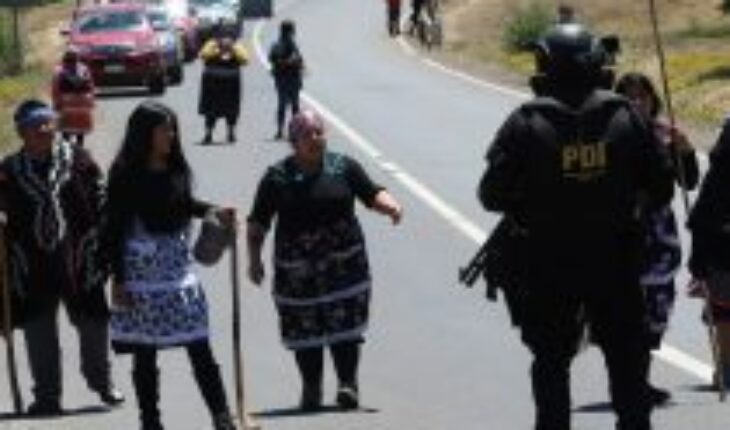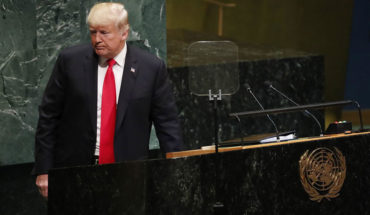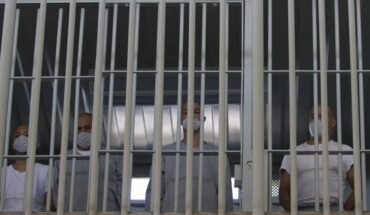The conflict in La Araucanía is an issue that undoubtedly deserves attention at the country level. Many people think that the legacy of the Mapuche conflict dates back to the year 1550, as Alonso de Ercilla relates in his acclaimed poem La Araucana, or from the Independence of Chile that brought with it the beginning of the so-called Pacification of La Araucanía, a process in which indigenous and fiscal property is defined.
According to a study carried out by ECLAC, between 1883 and 1929 the Mapuche population was relocated to an approximate land of 500,000 hectares of a total of 10,000,000 through the so-called indigenous reductions, where a large part of the other domains were occupied by the military, cities, delivery of titles of mercy or sale of lands to foreign and national settlers.
Later, between the decade of the 30s and the end of the 60s of the last century, the territory of the Mapuche reductions reached about 100 thousand hectares as a result of the continuous parceling endorsed by the State and by abuses of Chilean settlers and foreigners to a Mapuche people that was plunged into poverty and illiteracy. Some of these were materialized through the State, while others were in the purest style of the lords of the Querencia endorsed in the legality of registering a property in their name of lands that did not belong to them, with abuses, mistreatment and denigration of a culture that had lost its identity. When I was a child, some elderly people from my town (Cañete) who had lived through these periods told by way of mockery: “Many landowners took the conservative notary and some chuicas of wine to Mapuche lands, made them sign the delivery of the wines, and days later they shot them out of their lands.” Today this is called corruption and abuse. Many people who were “legally” stripped of their lands stayed to serve these lords of the Querencia and satisfy their whims, enduring the denigration, mistreatment and racism that at that time was endorsed by society.
One way to exemplify that these abuses are not only reduced to the expropriation of land, lies in the fact that the existence of the so-called “bastard sons” was common, who were mestizos as a result of rapes of the wives of the Mapuches, and even of the same daughters that they had with these women. This was something that was often silenced and accepted by the Mapuche communities. Some people of the time said that, when a subdued Mapuche woman had a child and he came out with racial features of these lords of the Querencia, the Mapuches said: “My son was born cute, he has blue eyes just like the boss”, this before the impotence of understanding that the social and political system did not protect them from such abuses and denigration.
Although with the Government of Salvador Allende there was a process of vindication of the Mapuche culture (fruit of the agrarian reform), in the attempt to reduce the poverty that afflicted this people, with the military dictatorship and the rise of the forestry industry, it ended up marginalizing the Mapuche people. Conaf sold a large part of the forest heritage to the current large forestry companies, which ended up marginalizing the Mapuche communities, causing an irrecoverable deterioration of the ecosystem.
With the decree of Law 701, which constituted an incentive to forest development in Chile, it was common to see how many lords of the Querencia burned much of the native forest heritage in the regions of Biobío and La Araucanía in order to obtain subsidies, in order to dedicate themselves to the forestry business of an industry that was in full growth and that focused mainly on the planting of pine and eucalyptus. Clearly, the loss of water resources, flora and fauna from these decisions is an irreparable damage to the wealth of resources available to the communities in the area.
Years later, with democracy, came the government’s attempt to vindicate Mapuche culture. The Indigenous Law was decreed and the National Indigenous Corporation was born. In my opinion, the measures adopted by governments in democracy were based mainly on trying to repair the problems of territorial allocation and regulate the property rights of the Mapuche people, leaving aside the reparation of a culture that suffered from impairment and abuse, losing its identity as an original people. This, added to the fact that the environmental degradation and economic deterioration of these communities were not effectively addressed.
The main campaign was the assignmentThese lands were transferable only to Mapuche peoples. From 2010 onwards, there was a widespread perception that Conadi would limit the purchase of land. In conversations with people from Mapuche communities, the most practical advice to those who demanded land claims from Conadi was that the land would be taken and that the State would negotiate a price with the owners of the land, in order to expedite the transfer and allocation of property. However, the vindication of a culture never went beyond very specific actions, well awarded by marketing.
It is important to mention that one of the great pains of which La Araucanía suffers are the precarious conditions in the labor force. The provinces that concentrate the largest Mapuche communities in the area are characterized by having an important forest heritage, but at the same time have the greatest inequality and productive lag.
This lack of development came hand in hand with the incentives of those people seeking wealth outside the law. It is in the interest of these people the existence of an increasingly radicalized conflict, because with this conflict they can establish parallel economic activities not protected by the legal framework. At least two activities have served in recent years for the intensification of a conflict whose solution is increasingly complex. The first of these is the emergence of timber theft cartels. Today there are several timber theft cartels that many know who participate in them, but no one dares to denounce them for fear of reprisals. These cartels are one of the sources of financing for a conflict that is becoming more complex every day. The second is drug trafficking, which has settled deep in the radicalized territory and is also nourished by this conflict.
The challenge that the new generations have to be able to repair the damage and reclaim a culture seems increasingly distant, since the incentives that the most radicalized groups have today are different from a cultural claim. Public policy must be aimed at the majority of Mapuche communities that have a peaceful nature and need an adequate claim in terms of culture, training and skills to be able to undertake businesses that generate good local development, as well as the non-Mapuche communities that belong to those areas, in order to reduce the existing productive lag.
The content expressed in this opinion column is the sole responsibility of its author, and does not necessarily reflect the editorial line or position of El Mostrador.





